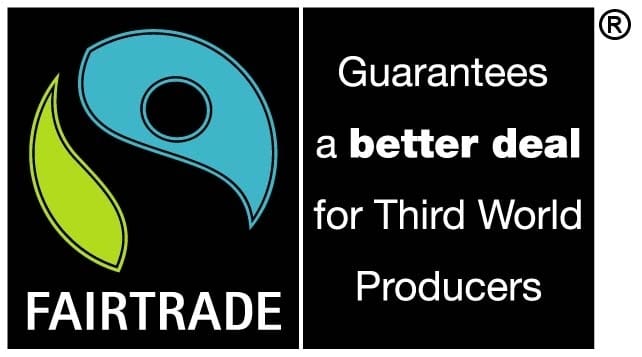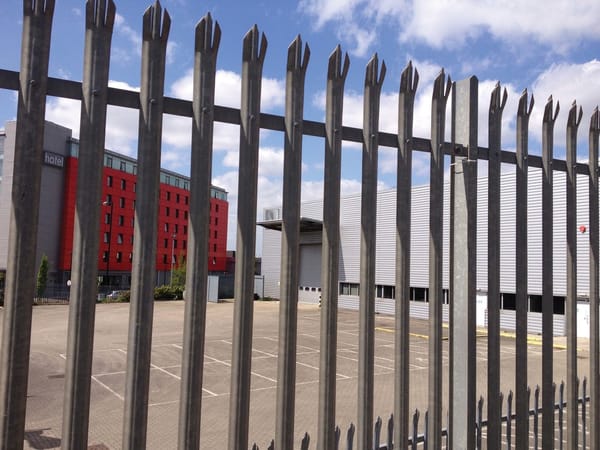Does Fairtrade actually work?
The battle lines are set, does Fairtrade actually help anyone? Or is it just a funny cartoon of a person holding a stick or something...

Yes
“Upon purchasing a certified product, we demonstrate our support for a fairer world” Tucked into a comforting chocolaty tub of Ben & Jerry’s recently? Needed a morning caffeine kick and grabbed a Starbucks mocha? Munched on a banana at lunch? Odds are, you’ve accidentally or purposefully purchased and enjoyed one of the many Fairtrade products currently on the shelves. In fact, one could argue that it is increasingly difficult to avoid the mark, with familiar home-brands such as Dairy Milk, Kit Kat, Chocolate buttons and Tate & Lyle also moving from the “dark side”.
Instead of chucking money at the situation, Fairtrade empowers the producers, providing an opportunity for them to earn a fair wage for their work. It guarantees a minimum fair price and removes the unpredictability that goes hand in hand with being a third world producer. As consumers we have the power to ensure that a fair price is guaranteed, for, upon purchasing a certified product, we demonstrate our support for a fairer world. With our growing consumer power we are showing governments and corporations that we don’t just care about the price of the product, we care about its source, its producers and how it is made. The success of this is demonstrated through big corporations, such as Nestle, Tesco, Cadbury and Unilever, taking note and moving to the certification scheme. This should continue to expand, leading to more and more products being sustainably and ethically sourced.
Increasingly, the focus within the Western World is about providing the developing world with choice; creating options as opposed to dictating policy. Fairtrade nurtures choice since, with the premium gained, communities can direct their money to where it is needed, for example to education, healthcare, water supplies, roads, the environment and crop quality. To democratically decide where the money is targeted, many communities form growers’ cooperatives, such as the Kuapa Kokoo Union in Ghana, which was set up in 1993. Through joint decisions, communities are transformed. The cycle of poverty is broken as children are educated and move up the social ladder. As well as transforming the producers’ communities, it can positively impact British towns, businesses and schools by creating a campaign over which people can unite. Thus, Fairtrade fosters the community spirit within Britain and abroad, also uniting the consumer and the producer in a common cause – JUSTICE.
My only qualm with Fairtrade is that it should be the status quo; every farmer, producer and factory worker should already be guaranteed a living wage and much more. Article 23 of the Universal Declaration of Human Rights states that “Everyone, without any discrimination, has the right to equal pay for equal work”. I believe that buying Fairtrade will pave the way towards this better, brighter, future for everyone.
No – Rory Fenton
“A measly 10% actually goes to the producer”
That so many of the world’s farmers live in dire poverty while those of us who consume their products live in relative luxury is a fact that will leave few consciences unmoved; it seems self evidently wrong that a farmer in Ethiopia be paid 5p for a cup of coffee that sells for £2 in London. The most natural answer to this apparent wrong is Fairtrade; simply pay farmers a bit more for their products and protect them from market fluctuations by guaranteeing a minimum price. But this simple and understandable logic only makes it more shocking when the actual facts of Fairtrade are laid bare.
But first, a word about where Fairtrade has been successful: marketing. There are now more than 4,500 Fairtrade products available. UK sales boosted by 43% in 2008 (in spite of the recession) and the British government have announced a four-year £15m funding package for the organisation. So the Fairtrade brigade should certainly feel good about how they have advanced as an organisation; but have they earned that smugness as they look disapprovingly at us mere mortals over their steaming and oh-so-moral Fairtrade branded lattes? Please.
Out of the ‘Fairtrade premium’ paid for a product (how much more it costs than an equivalent non FT product), a measly 10% actually goes to the producer it claims to help. The remaining 90% is creamed off by the shop (which, remember, has already profited from your coffee) and the grotesquely inefficient Fairtrade organisation itself, which spends it on bureaucracy and its feel good advertising. This makes it, quite possibly, the least efficient form of donation possible, other than actually flying yourself out there to hand over the premium in person.
But that just tells us how little of the premium actually makes it to producers. Surely the people receiving the money are the poorest of the poor? Nope. It’s actually very expensive and difficult to become a Fairtrade farmer. Certification costs 5 times as much as going certified organic. Fairtrade also serves to enforce global trade quotas and tariffs that keep the poor in their place. Mexico is the largest single Fairtrade coffee producer, despite the country having free access to US markets and enjoying average wages eighteen times those of its coffee rival Ethiopia, which loses out as a result. Then you have to consider the impact of the Fairtrade premium on those who don’t receive it. By encouraging consumers to buy fair trade, non Fairtrade prices (the vast majority) are artificially forced down, hurting the world’s poorest famers.
In conclusion, Fairtrade is merely a shameless feel-good operation that does nothing to help the world’s poor, gives big profits to big companies and actually depresses prices for the poorest farmers. It was a nice idea. It is a truly awful reality that keeps the world’s poor ‘in their place’ and serves an affluent minority. Don’t even consider buying into it.







